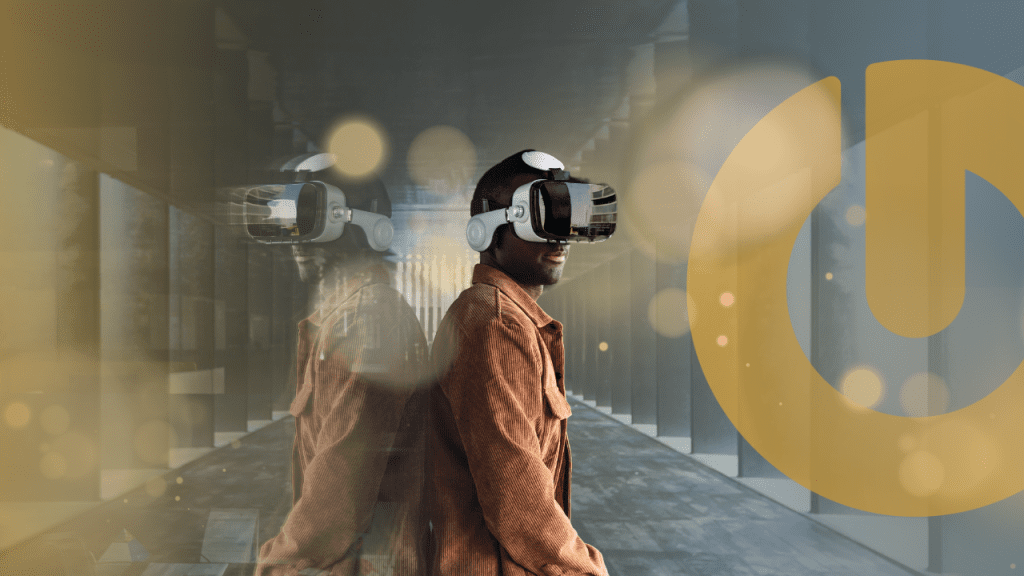Technology brings us together. We have consumer-grade services like social media, communication channels, and cloud storage. Then, we have business solutions like automation, complex computation, artificial intelligence, innovative solutions, and safety regulations. All of these became possible thanks to the growth and development of technology.
However, have you ever considered that our technology might be making us lazy? It’s true that technology has significantly impacted our society. Whether this is beneficial or not will only depend on how we use it.
In this blog, we want to highlight the effects of technology on our psychology and physiology.
The Primary Goal of Technology
Everyone agrees that technology’s main purpose is to make our lives easier. Many businesses were able to innovate processes and increase productivity and efficiency using modern technologies. Technology is certainly here to stay.
In fact, it will only become better as time goes by. Over the past decades, we’ve made giant leaps in technology.¹ This can be seen even in data just from the last 10 years.
More and more people are using smartphones today. From 2012 to 2022, internet usage increased by 127 percent, and social media users increased by 212 percent.
In the last decade, we’ve also experienced the most advanced technological innovations all over the world. While AI was introduced more than 60 years ago, it wasn’t until 2014 that we fully utilized the technology. Smartphones became popular only around 15 years ago.
Now, we have cloud technologies, advanced analytics, machine learning, and automation systems. These technologies drive business operational success and growth. Without these things, our current society might crumble.
Read more: Exploring the Impact of Generative AI and Automation on IT Workflows
The Negative Effects of Technology
The benefits of technology are quickly apparent. However, there are negative impacts as well.
Aside from affecting consumer perception and dependence, it could also affect businesses in general. After all, most organizations depend primarily on their workforce.
So, is technology making us lazier or smarter? Or both?
1. Sedentary Lifestyle
One of the most apparent effects of technology is promoting a sedentary or inactive lifestyle. With unlimited access to entertainment, social media, and streaming platforms, people are becoming more physically inactive. This is one of the reasons we see countless content online about physical fitness and well-being.
Sitting in front of screens and lying on the bed for hours can lead to health complications like sleep problems and eye strain. If not addressed, it could even lead to obesity, cardiovascular disease, and reduced muscle strength.
According to a study published in Springer Link, sedentary behavior and habits can lead to:²
- 112 percent increase in diabetes
- 147 percent increase in cardiovascular disease
- 90 percent increase in cardiovascular mortality
- 49 percent increase in overall mortality
2. Inactive Social Life
Do you remember watching for a message on your tiny beeper? Or waiting for weeks, even months, just to receive a letter by snail mail? In those days, we significantly valued communication. Now, we can communicate with one another and call our loved ones, colleagues, and friends at the tap of a button.
Yes, technology has improved the way we connect. It brought us closer despite being in different locations. Distance is no longer an issue. However, it also brought about a decline in face-to-face interactions, effectively reducing our social skills. According to Harvard, 36 percent of Americans, 61 percent of young adults, and 51 percent of early-stage mothers feel “serious loneliness.”³
Social media and modern communication channels have their advantages. However, they can lead to laziness in maintaining real-life relationships. Having or even avoiding conversations is more convenient online. Sadly, this reduces opportunities for genuine human connection and contributes to lower mental health.
3. Reduced Mental Effort
Aside from affecting our physical body and lifestyle, technology has its psychological effects as well. As we rely more on technology to perform tasks, we might end up underusing our brains. While these tools allow us to be more productive, they reduce our need to sharpen our memories or develop personal strategies.
- Calculators handle simple and complex mathematical computations.
- Alarms and notifications manage our schedules and deadlines.
- Spell-checkers and detection tools correct our writing.
- GPS applications eliminate the need to ask for directions.
What Contributes to Laziness?
Digital assistance and smart devices may enhance productivity. However, these also contribute to laziness. One example is automation. It’s true that automating our tasks and responsibilities reduces time consumption. However, it also reduces our skills in decision-making and intervention.
All these contribute to technological reliance. Dependence on automation and digital tools reduces mental effort. It may even affect our abilities to solve complex problems and perform tasks independently without technology. What if technology suddenly vanishes?
4. Compromised Critical Thinking and Decision-Making Skills
Since we’re no longer actively putting in the mental effort, we end up compromising our problem-solving skills.
According to the University of California, modern media consumption, like videos and games, allows for faster transfer of information.⁴ However, they leave very little to no room for imagination or analysis.
“If we want to develop a variety of skills, we need a balanced media diet. Each medium has costs and benefits in terms of what skills each develops.” Patricia Greenfield, UCLA professor of psychology
This applies to all forms of technology. As we digest more and more information, our brains struggle with information overload. We can now easily look for information online, go to a search engine, or even ask generative AI for an answer. We become passive recipients of information. This could lead to a generational decline in cognitive abilities and critical thinking skills.
5. Impact on Work Productivity
If you think technology only affects us as individuals, you’re wrong. Technology affects our professional lives as well.
Aside from physical health concerns, mental and cognitive issues, and social abilities, technology can directly impact the way we work. Being used to vast amounts of information and multitasking, people tend to participate in multiple activities at once.
Multitasking is a myth, and no one really engages in multiple tasks at once. There might be a few gifted individuals, but in reality, people simply transfer quickly from one activity to another. In fact, multitasking can reduce one’s productivity by 40 percent.⁵
Along with these misleading habits, technology also reduces our attention span. Not to mention, it feeds our need to always be on top of our gadgets. As a result, we end up losing focus and procrastinating on tasks. Lastly, technology blurs the boundaries between work and personal life. All of these could lead to burnout and reduced overall productivity.
What Can You Do to Avoid Technological Laziness?
While technology can promote laziness, it still depends on how we use it. After all, we are its maker. If we truly want to improve our mental health and overall well-being, we have to learn how to be the master of our own technology.
1. Set Boundaries
Technology addiction only happens if we allow our lives to revolve around modern gadgets and technology. If we want to lessen the negative effects of technology, we have to create healthy boundaries. Limit technology use, especially for personal consumption.
Instead, add more physical activities to your day. Socialize more and meet people face-to-face. Most importantly, spend quality time with your loved ones.
2. Practice Mindfulness
Study how technology can affect your productivity. Be aware of when not to use technology and how to use it effectively. The goal is to approach technology in a healthy manner and avoid over-relying on technology.
This also involves actively developing your critical thinking skills. Engage in activities that require you to think, solve problems, and approach things creatively, like:
- Reading books and academic articles.
- Engaging in debates and constructive discussions.
- Learning new skills.
- Playing games that promote critical thinking, like card games or quiz games.
3. Engage in Physical Activity
One of the most effective ways of negating a sedentary life is to be more active. Engage in physical exercise or sports, or simply take a walk. This can improve your physical and mental health, promoting a healthier lifestyle. Aside from this, physical engagement can also boost your energy. This can help you be more productive and prepared to tackle your daily tasks.
At work, remember to take regular breaks and vacations. Working for continuous hours can be detrimental to your health. You might start with something simple, like a standing desk. Or you could even set alarms to remind you to be active. As long as you’re working towards self-improvement, you’ll be healthier if you commit to your physical wellness.
4. Set Priorities and Goals
To avoid distractions, you must be focused. Set your tasks and accomplish them within a set timeline. This requires you to break down your responsibilities into actionable steps.
If you must accomplish a project, don’t simply set a date for when you’ll complete it. Break it down by phases, add timelines, look for prerequisites, and stick to them.
The adverse effects of technology and the habits you form can be broken by your own will. Be committed, and you’ll soon see the positive effects.
TECHNOLOGY IS A TOOL. NOT A CRUTCH. NOT A HINDRANCE.
As humans, we have the innate ability to critically think, assess, and evaluate different areas. Find the right balance of using technology. It’s meant to enhance our productivity. However, if we rely on it too much, we might be doing the opposite of technology’s primary objectives. Ultimately, this will depend on your capabilities, self-control, and how you utilize technology in your life.
References
- Kemp, Simon. “Digital 2022: Digital Adoption Doubled Over The Past Decade.” DataReportal, 26 Jan. 2022, https://datareportal.com/reports/digital-2022-digital-adoption-doubled-over-the-past-decade
- Wilmot, Emma. “Sedentary time in adults and the association with diabetes, cardiovascular disease and death: systematic review and meta-analysis.” Springer, 14 Aug. 2012, https://link.springer.com/article/10.1007/s00125-012-2677-z
- Kaminyar, Kevin.“Is Social Media Making You Less Social?” Entrepreneur, 14 Mar. 2023, https://www.entrepreneur.com/science-technology/is-social-media-use-making-you-less-social-and-more-lonely/446849
- Wolpert, Stuart.“Is technology producing a decline in critical thinking and analysis?” University of California, 27 Jan. 2009, https://newsroom.ucla.edu/releases/is-technology-producing-a-decline-79127
- “How Is Productivity Affected When Employees Multitask?” ActivTrak, 14 Jul. 2023, https://www.activtrak.com/blog/how-is-productivity-affected-when-employees-multitask/#:~:text=An%20employee%20who%20can%20juggle,productivity%20by%20up%20to%2040%25.




